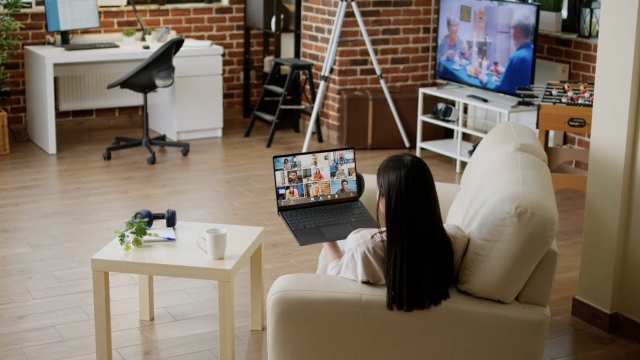For some people, the start of a work week has become a dreaded Monday.
"You're drowning in thoughts like, 'What do people need from me, do I have time for that? What if I don't get everything done?'" entrepreneur Marisa Jo Meyes said.
Found herself drowning in work first as someone who worked in a corporate job and later when she started her own business, so she came up with a new work trend — Bare Minimum Mondays.
"You think about how those Sunday Scaries used to be when you had that corporate job," Meyes continued.
Bare Minimum Mondays is doing the littlest possible work at the start of the week. It's prioritizing well-being over productivity, whether that's doing your hair, going out for a run, or meditating.
"I think it's going to be a thing now, at least in my world," Meyes said.
Bare Minimum Monday is similar to what we saw with quiet quitting. It's really about employees starting to set boundaries to avoid burnout.
Andrew McCaskill, career expert at LinkedIn, says it works best to talk to your manager about it.
"Talking to your manager about setting those boundaries can really be helpful to get rid of some of those Sunday Scaries that you might be feeling," he said. "Sunday Scaries is really the anxiousness and the anxiety people feel right before they have to go back to work, whether they're going back to work on Monday or not. And it really is stemming from economic uncertainty."
SEE MORE: Why is quick quitting gaining momentum?
A recent Headspace member survey found 28% of their members report having trouble falling asleep at least four nights a week — due in part to fear of losing their jobs.
The idea of bare minimum Mondays is an opportunity to ease in and set yourself up for success. Give yourself some time to get organized.
But what does Bare Minimum Mondays say about our work culture? Are companies not prioritizing employees well being or mental health?
Desiree Pascual of meditation company Headspace says even a mindful walk to break the day can make a difference.
"Since the pandemic, we have become much more aware of how important mental health is overall. Not just in the workplace, but also in people's personal lives," Pascual said.
But is this new trend giving the approval for workers to slack off?
"Companies want you to be productive, but also professionals are humans doing work, and we're human first. So many companies are wanting to make sure that a healthy employee is a productive employee."
McCaskill recommends not waiting until you’re burnt out to talk to your manager.
Trending stories at Scrippsnews.com



